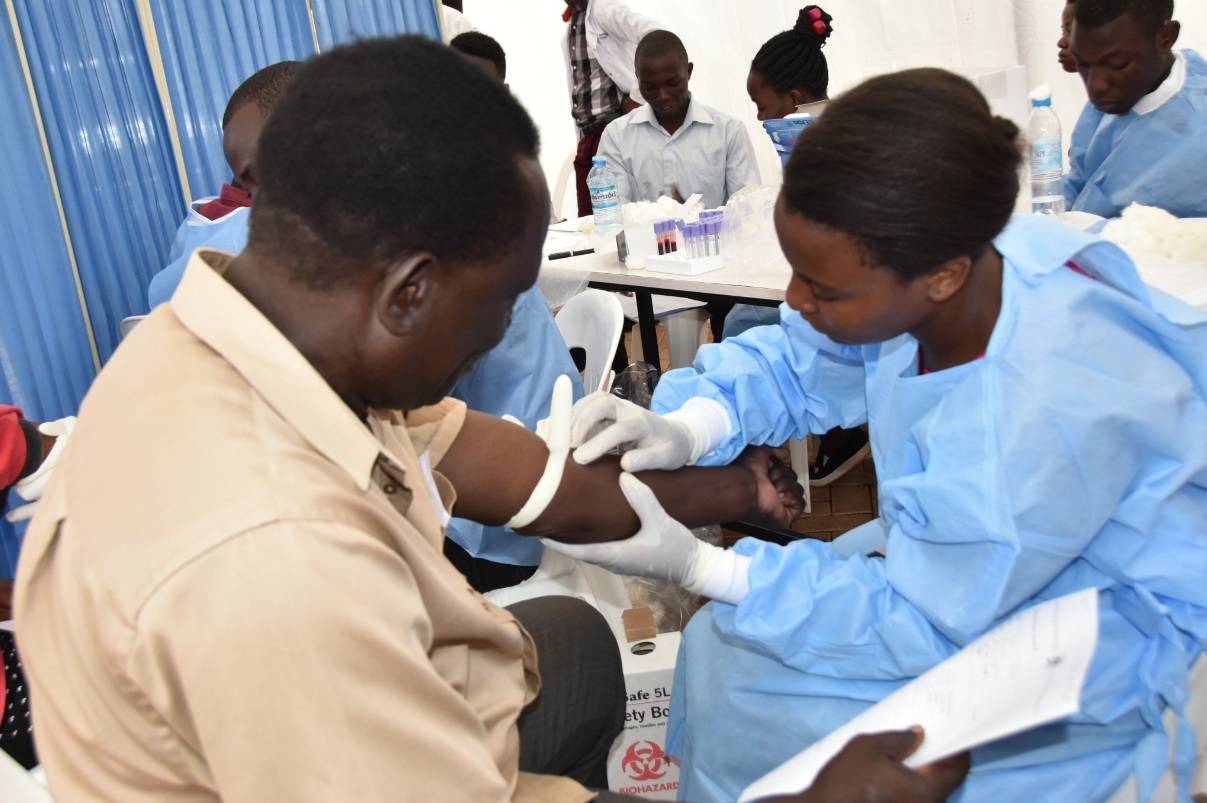Nigeria Marks World Hepatitis Day 2025 with Bold Push for Elimination by 2030
The theme calls for bold action to dismantle the systemic, social, and financial barriers that continue to hinder progress in the elimination of viral hepatitis—one of the most persistent and deadly global health threats.

- Country:
- Nigeria
In a powerful demonstration of renewed commitment to public health, the World Health Organization (WHO) and the Government of Nigeria joined forces with health sector stakeholders to mark World Hepatitis Day 2025 under the global theme “Hepatitis: Let’s Break It Down.” The theme calls for bold action to dismantle the systemic, social, and financial barriers that continue to hinder progress in the elimination of viral hepatitis—one of the most persistent and deadly global health threats.
Observed each year on 28 July, World Hepatitis Day raises awareness about hepatitis A, B, C, D, and E—five distinct viruses that cause liver inflammation, with the potential to lead to chronic liver disease, cirrhosis, and liver cancer. This year’s event was marked in Nigeria with national screenings, vaccinations, stakeholder dialogues, and the official launch of “Project 365,” a year-round campaign to combat hepatitis B and C and eliminate new transmissions by 2030.
A Public Health Crisis in Numbers
Nigeria remains one of the global epicentres of hepatitis, ranking third in the world for hepatitis prevalence. In 2022 alone, the country recorded 325,000 new hepatitis infections, reflecting the urgent need for scale-up in testing, treatment, and prevention services.
Despite effective vaccines for hepatitis B and curative treatments for hepatitis C, access remains a major challenge. In the WHO African Region, more than 70 million people live with chronic hepatitis B or C, but fewer than 10% are diagnosed or receiving treatment.
Government Response: Launch of Project 365 and Expanded Screening
To address this pressing public health challenge, Nigeria launched “Project 365” during a ministerial press briefing at the Federal Secretariat in Abuja. The campaign is designed to provide daily action and visibility around hepatitis prevention and care throughout the year.
Speaking at the event, Dr Godwin Ntadom, Director of the Public Health Department at the Federal Ministry of Health and Social Welfare, who represented Minister Professor Mohammed Pate, outlined the massive economic burden hepatitis imposes on the country. He estimated annual losses ranging between ₦13.3 trillion and ₦17.9 trillion in direct and indirect costs.
“Nigeria must no longer hold the third-highest hepatitis burden globally. We have the science, we have the strategy, and we will act together, boldly and urgently, toward a hepatitis-free Nigeria,” Ntadom declared.
A significant highlight of the commemoration was a three-day hepatitis B screening and vaccination campaign at the National Assembly Complex in Abuja. Individuals who tested negative received on-the-spot vaccinations, while those who tested positive were linked to referral treatment centres, demonstrating a practical integration of prevention and care services.
WHO’s Support and the Global Perspective
Representing WHO at the event, Dr Mya Ngon, cluster lead for Universal Health Coverage for Communicable and Noncommunicable Diseases, praised Nigeria’s leadership in pursuing triple elimination of HIV, viral hepatitis, and sexually transmitted infections (STIs). She highlighted the importance of:
-
Reducing the cost of hepatitis treatment
-
Expanding local pharmaceutical manufacturing
-
Boosting public awareness and stigma reduction
-
Integrating hepatitis care into primary healthcare facilities
“WHO remains committed to supporting Nigeria in its journey toward hepatitis elimination through improved access to diagnostics, vaccines, and treatments,” Ngon said.
She also reiterated WHO’s core hepatitis elimination recommendations:
-
Administer hepatitis B vaccines to newborns within 24 hours of birth
-
Integrate hepatitis testing and treatment into existing primary healthcare systems
-
Combat misinformation and stigma surrounding the disease
-
Establish sustainable domestic financing mechanisms
-
Protect the rights of those living with hepatitis, especially in healthcare and employment
Voices from the Community: A Beneficiary’s Story
Among the many participants in the screening exercise was Fash Yommie, a 53-year-old resident of Abuja. His personal testimony echoed the campaign’s core message:
“I took the test to know my status, and I am relieved to have tested negative. I now understand the importance of hepatitis prevention. I will start taking precautionary measures… I encourage everyone to get tested and vaccinated. Early detection is key.”
Yommie’s experience underscores the campaign’s focus on education, empowerment, and prevention, particularly in a country where myths, stigma, and lack of access often undermine public health efforts.
Systemic Integration and the Path Forward
In recent years, Nigeria has intensified hepatitis prevention through the inclusion of the hepatitis B vaccine in the national immunization schedule, targeting newborns and young children with the support of WHO, Gavi, UNICEF, and other partners.
This year’s campaign further reflects the broader national strategy of mainstreaming hepatitis services into the primary healthcare system. This integration is critical to expanding access to care for underserved and at-risk populations, such as those in rural communities, pregnant women, people living with HIV, and people who inject drugs.
The launch at the National Assembly Complex also symbolized the importance of legislative and political will, particularly in driving reforms for tax incentives, regulatory changes, and the establishment of a Viral Elimination Fund to support local pharmaceutical production and equitable healthcare access.
A United Front for Elimination by 2030
Through its continued partnership with WHO and other global health agencies, Nigeria aims to meet the 2030 Global Health Agenda goals by reducing hepatitis-related deaths and infections and ensuring universal health coverage for all.
The 2025 World Hepatitis Day activities in Nigeria serve as a powerful reminder that hepatitis is preventable, treatable, and in many cases curable. With political leadership, community participation, and international support, a hepatitis-free Nigeria is within reach.
ALSO READ
Mapping health inequities: How health geography can transform global health
Pioneering Global Healthy Workplace Summit in Mumbai
SA to Launch Pandemic Fund to Bolster Global Health Preparedness
Remembering Dr. David Nabarro: Global Health Advocate and Mentor
Afreximbank Appoints New President, Expands Finance Window at AGM in Abuja










